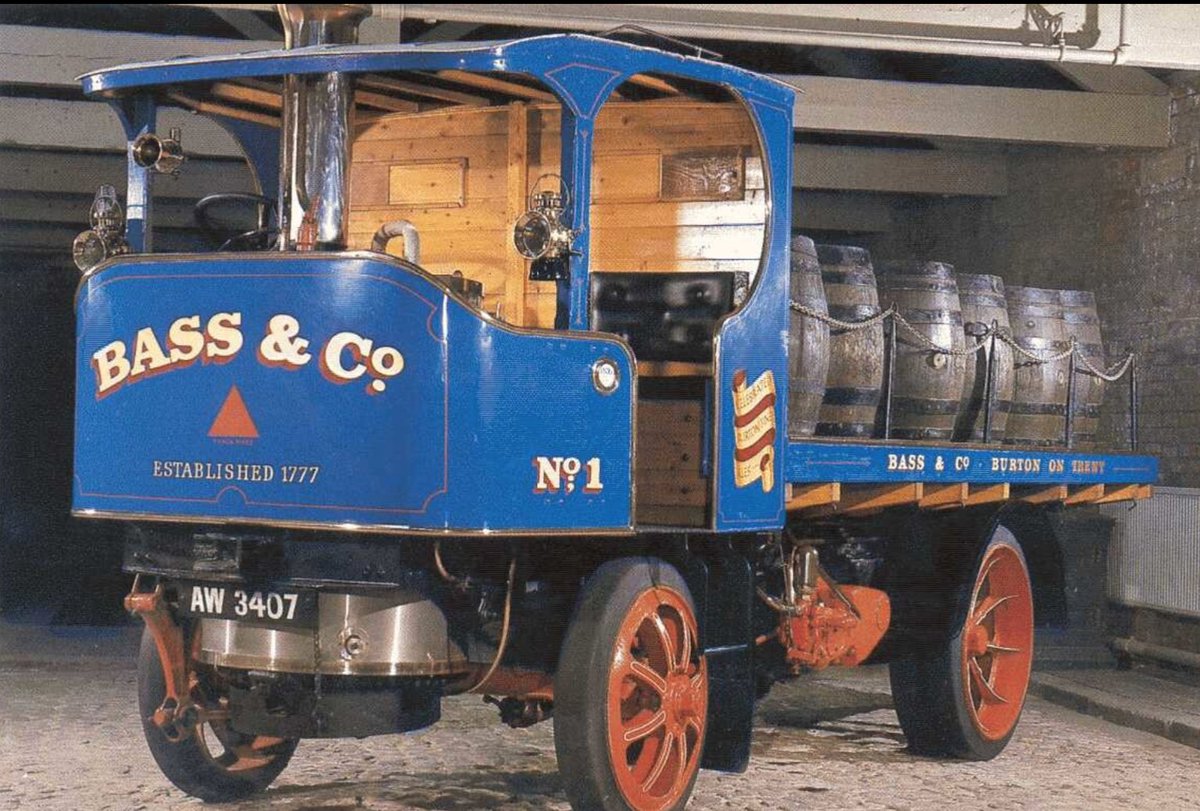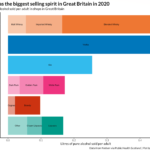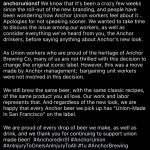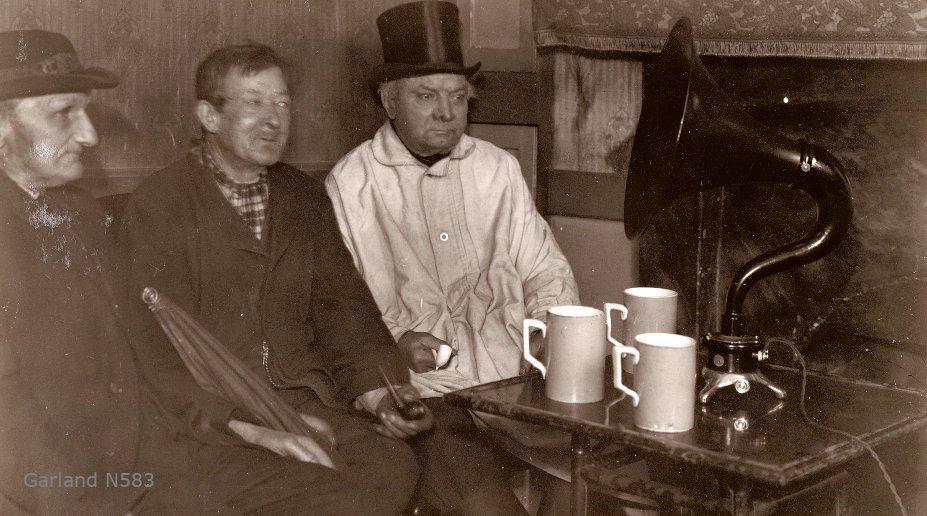So, I have to have a very high wisdom tooth coming out Friday. No beer for a while for me. Day surgery. Nothing too drastic. Thanks for asking. And have had my mind on that and other things most of the week. Evan has found himself very much closer that he in his thoughts had assumed. Lars has offered his hopes for peace and I share those hopes. Ontario brewer, John Graham, has put hope in motion by going to Germany to provide transportation support. It’s going to be sunny and +11C on Thursday afternoon. Spring is here. A good time to have hope… and green beer… and paddy wagons.
The tedious days of trial hearings of the “Slurs Against Keystone” have started. The most interesting testimony for me has been this – the CEO of Molson Coors couldn’t have cared less about Stone. He had real problems:
…recapturing economy beer drinkers who had moved on to its competitors in the beer industry was considered a “quick win” by a steering committee of MillerCoors executives and outside consultants and marketing professionals working to increase sales of Keystone Light. Demographic data of Keystone Light consumers was also top of mind for Hattersley when MillerCoors introduced the 15-pack of Keystone Light. Forty percent of Keystone Light consumers earn less than $30,000 a year and either work in a blue collar job or not in the workforce. “It means they are price conscious — don’t mess with the pricing button,” Hattersley said.
Sensible testimony. Conversely, the lead witness has come across as a bit of a fool. He doesn’t appear to understand what the pit of his stomach is and…
Stone founder Greg Koch took the stand in the Stone vs. MolsonCoors lawsuit. Described his reaction to images of stacks of Keystone Light cases oriented to show only the word STONE as “horror” …
Dope. Just remember… as noted last week, Keystone called its brand “‘Stone” before Stone Brewing was known. We shall watch for further updates as the intravenous drips… drips… drips…
Elsewhere in the annals of Big Craft Courtroom*, BrewDog is fanning the flames of its own roasting. As The Guardian newspaper has reported most excellently:
The boss of BrewDog, James Watt, hired private investigators to obtain information about people he believed were taking part in a smear campaign against him and repeatedly accused one woman of being involved until she blocked him on social media. According to multiple sources and evidence seen by the Guardian, private investigators who said they were working for Watt approached people to gather evidence about those who he appeared to believe had maligned him. One subject of their inquiries, Rob MacKay, an ex-BrewDog employee, had appeared in a BBC documentary, The Truth About BrewDog, which made claims about the company’s workplace culture and Watt’s personal behaviour as an employer, including towards women.
To be honest, this is a common enough thing in law. Private investigators are a regulated profession. Here is Ontario’s Private Security and Investigative Services Act, 2005, S.O. 2005, c. 34. I’ve been on a legal team that included a private investigator and proved a key allegation was not only probably false but actually utterly impossible. That’s what a PI can do. Here, there is a suggestion that the use of PI’s is itself improper. Look here, on a consultancy firm’s website that has an oddly Angolan revolutionary flag colour scheme – yet the firm works with other alleged offenders. Still confused by the use of the word “reconciliation” in this context. Best to get all this before the actual courts and tribunals.
One last legal note: “More than 25,000 litres of illicit beer seized at Dublin Port“!!
 The most interesting image on the internets this week was this ad by Timothy Taylor praising the care they take protecting their own wee yeast strain. As published in the October 13th edition of The Observer newspaper. The cartoon’s throwback style is particularly swell.
The most interesting image on the internets this week was this ad by Timothy Taylor praising the care they take protecting their own wee yeast strain. As published in the October 13th edition of The Observer newspaper. The cartoon’s throwback style is particularly swell.
The youngest off-licence holder in 1974’s Britain. Try to identify some of the bottles behind her on the shelf.
Also in The Guardian, a cleverly constructed discussion triggered by Heineken that “inflation was “off the charts” and its costs would increase by about 15% which could lead to lower beer consumption. Clever? This:
The latest warning on inflation comes as Heineken said the price of beer it sold rose an average 4.3% in Europe in 2021, partly because of a shift to more premium beers and the reopening of bars and pubs, as well as like-for-like price increases. In the UK, beer sales rose by about 5%, driven by the group’s premium Birra Moretti and Desperados brands. Low- and non-alcoholic drink sales increased by more than 30%, led by the continued success of Heineken 0.0.
What’s happening elsewhere in the world? South Africa’s top brewing news story off the week? Cow dung:
Beer maker South African Breweries (SAB) says it will soon be using the manure of over 7 000 cows to power its operations. The company on Thursday issued a statement indicating it signed a power-purchase agreement with black-women-owned Bio2Watt. The renewable energy will be produced from Bio2Watt’s Cape Dairy Biogas Plant, located on one of South Africa’s biggest dairy farms – Vyvlei Dairy Farm – in the Western Cape town of Malmesbury.
New ventures are popping up elsewhere. Japan’s Kirin is taking its fermenting skills in a new direction:
The company now hopes to use the technology of the beer-making process in its new biotech ventures. “We want to turn Kirin into a fermentation biotechnology company. We need to grow a new business while the beer segment is still healthy,” Isozaki told the FT. Kirin unveiled a three-year business plan last month, in which ¥100 billion will be invested in research and development and to expand factories in the health science and pharmaceutical sectors. A further ¥80 billion will be spent on in its beer and beverage business. As part of the shift away from beer and into pharmaceuticals, Kirin will increase production of Citicoline, a memory improving supplement.
Memory supplement? Is that a little note of a little something slipped in there?
Southern hemispherically, “Ron of the Road” has done Brazil to the Netherlands to Columbia in under 48 hours. Nuts. His blog posts are two trips behind him. The details, still, compel:
Getting money from the cash machine turns out to be problematic. Until I use my visa card. That’s a relief, having some Brazilian dosh in my pocket. The taxis from Sao Paolo airport are pretty good. They’re run by a cooperative of drivers, which has a monopoly. There are set fares to various locations in the city. My new German friend will be dropped of first, for the set fare. Then the driver will continue on the meter to drop me off. A couple of minutes outside the airport, it starts pissing it down. Really pissing it down. Full-on tropical downpour. Soon the roads are transformed into rivers. It’s all a bit scary. Doesn’t seem to faze the driver. I guess he’s seen it all before.
There. Enough! For more check out the updates from Boak and Bailey mostly every Saturday and from Stan every Monday, plus more with the weekly Beer Ladies Podcast, and at the weekly OCBG Podcast on Tuesday and sometimes on a Friday posts at The Fizz as well. There is a monthly sort of round up at The Glass. (Ed.: that seems to be dead now.) There is more from the DaftAboutCraft podcast, too. And the Beervana podcast. And sign up for Katie’s irregular newsletter, The Gulp, too. And check out the Atlantic Canada Beer Blog‘s weekly roundup. Plus follow the venerable Full Pint podcast. And Fermentation Radio with Emma Inch. The AfroBeerChick podcast as well! And also look at Brewsround and Cabin Fever. And Ben has his own podcast, Beer and Badword (which I hope is revived soon…) And remember BeerEdge, too, and The Moon Under Water.
*Check out my new podcast, Big Craft Courtroom!














